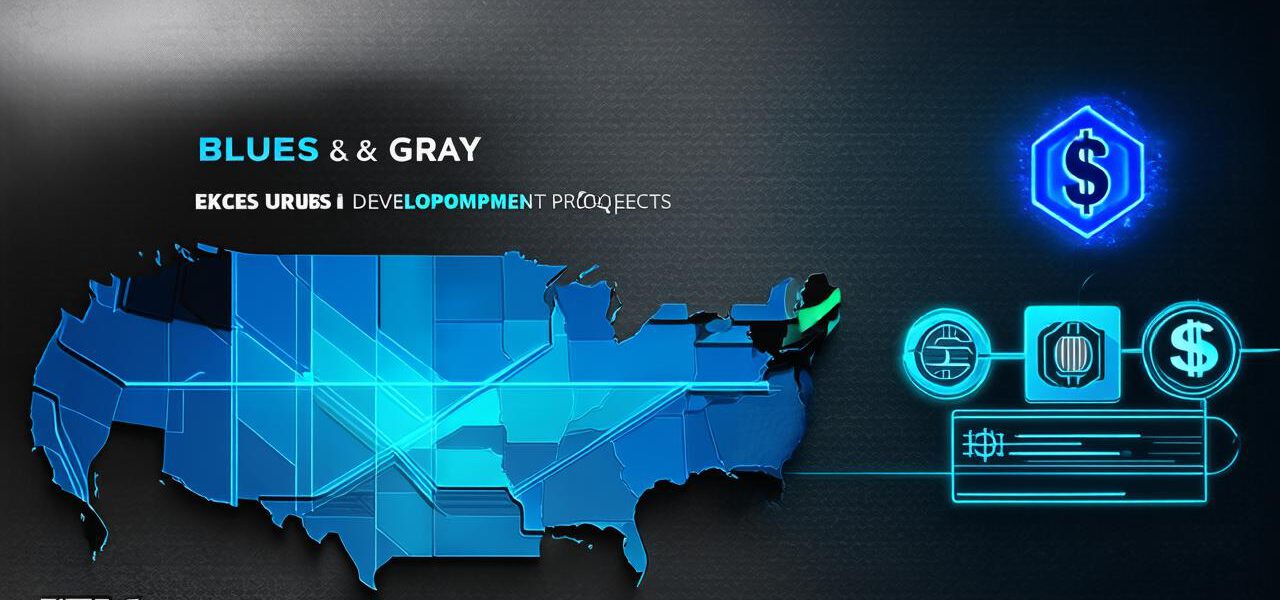
Optimize Finance Projects with Blockchain Development
The decentralized nature of blockchain technology makes it an ideal solution for managing financial transactions and projects in the finance industry. In this comprehensive guide, we will explore how blockchain development can optimize finance projects and provide numerous benefits to stakeholders.
Blockchain Development for Finance Projects: What are the Benefits?
Improved Transparency and Security
One of the key benefits of blockchain technology is its ability to provide transparency and security in financial transactions. Each transaction on a blockchain is recorded on a distributed ledger, which ensures that all parties involved can see and verify the transaction. This eliminates the need for intermediaries and reduces the risk of fraud and errors.
For finance projects, this translates to increased trust between stakeholders and better control over financial assets. Blockchain-based systems can also help detect and prevent fraudulent activities, leading to greater financial security.
Faster Settlements and Reduced Costs
Blockchain technology can significantly reduce the time it takes for settlements to be processed, as transactions are recorded on a distributed ledger and validated by multiple parties. This eliminates the need for intermediaries, which can often cause delays and increase costs.
By using blockchain, finance projects can streamline their operations, reduce administrative overhead, and save money in the long run. Additionally, smart contracts can automate many of the processes involved in financial transactions, further reducing the risk of human error and increasing efficiency.
Enhanced Data Privacy and Security
Blockchain technology offers a high level of data privacy and security, as all information is encrypted and stored on a distributed ledger. This ensures that sensitive financial data is protected from unauthorized access and tampering.
For finance projects, this means that personal and financial information can be securely stored and accessed only by authorized parties. This reduces the risk of data breaches and other security threats, which are becoming increasingly common in the digital age.
Blockchain Development for Finance Projects: Case Studies and Examples
Blockchain-Based Supply Chain Management
One example of how blockchain development can optimize finance projects is in supply chain management. By using blockchain technology, companies can create a tamper-proof record of every transaction involved in the supply chain, from raw materials to finished products.
This provides greater transparency and accountability, as all parties involved can see and verify each transaction on the distributed ledger. It also eliminates the need for intermediaries, reducing costs and increasing efficiency.
For instance, Walmart has partnered with IBM to create a blockchain-based system for tracking food products from farm to store. This allows Walmart to trace the origin of food items, ensuring that they are safe for consumption and reducing the risk of contamination.
Blockchain-Based Voting Systems
Another example of how blockchain development can optimize finance projects is in voting systems. By using blockchain technology, voting systems can be made more transparent, secure, and efficient.
For instance, West Virginia became the first state in the US to use a blockchain-based voting system for its primary elections in 2018. This allowed voters to cast their ballots securely and anonymously, while also providing greater transparency and accountability in the voting process.
Blockchain-Based Microfinance Platforms
Blockchain technology can also be used to create microfinance platforms that provide access to financial services for underserved populations. By using blockchain, microfinance platforms can be made more transparent, secure, and efficient, reducing administrative costs and increasing lending capacity.
For instance, Tala is a blockchain-based microfinance platform that provides mobile loans to people in the Philippines. Tala uses artificial intelligence and machine learning algorithms to evaluate creditworthiness and assess risk, making it easier for people to access financial services.
Blockchain Development for Finance Projects: Best Practices and Guidelines
Identify the Right Use Case
Before implementing blockchain technology for a finance project, it is important to identify the right use case. This will help ensure that the technology is being used effectively and efficiently, and that it meets the needs of all stakeholders involved in the project.
Ensure Compliance with Regulatory Requirements
In the finance industry, there are many regulatory requirements that must be met when implementing new technologies. It is important to ensure that any blockchain-based system is fully compliant with these regulations, and that all stakeholders understand their responsibilities under them.
Establish Clear Governance Structures
When implementing a blockchain-based system, it is important to establish clear governance structures that outline roles and responsibilities, as well as processes for decision-making and conflict resolution.
Invest in Education and Training
Blockchain technology is still relatively new, and many stakeholders may not be familiar with its capabilities or how to use it effectively. It is important to invest in education and training to ensure that everyone involved in the project has a strong understanding of blockchain technology and how it can be used to optimize finance projects.



